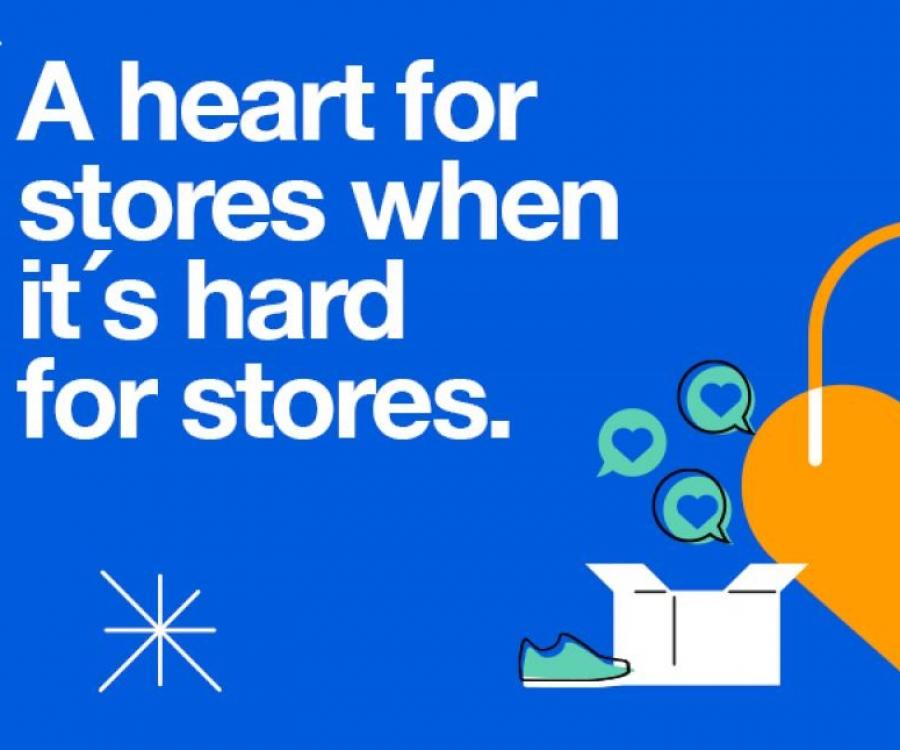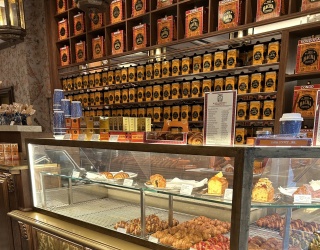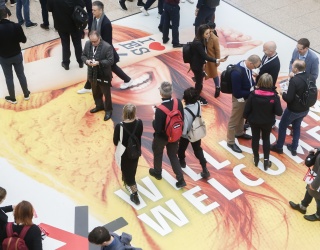Regardless of what you might think of Amazon, in 2017, the internet giant has pioneered more innovations than any other entity. Amazon Flex, Prime Now, and Amazon Fresh are just some of the projects the U.S. company created to explore new ways to provide service and delivery. Added to this mix are Alexa, Echo Spot, and Echo Look, which all help customers with their shopping lists. And now, the Amazon Go Store has finally celebrated its official opening in Seattle.
Time and again, Amazon is being accused of causing the death of retail stores in town centers. But things are not quite so simple, argues Adrian Hotz, an entrepreneur, and visionary.

Mr. Hotz, what challenges do retailers and retail brands face at the Age of Amazonization?
The market is drastically changing because customers are changing the market. Customers order more items than ever before via Amazon. The Christmas season has shown this once again. Customers no longer want to be without this option. This is also why retailers and retail brands draw the following conclusion: the retail infrastructure has been shifting from pedestrian zones to the internet for quite some time now. The reason for this is the consumer and his/her needs.
Conversely, market shares are being redistributed. That is to say, Amazon grows disproportionately in the online retail sector and everyone that doesn’t grow at the same rate loses market shares. The decision of sportswear giant Nike illustrates this point. To catch up in its battle with adidas in the future, Nike now sells a selection of its products directly on Amazon to provide its customers with a better shopping experience. The stock market rewarded this choice. Nike’s stock price has increased after this decision.
Amazon also offers great advantages for startups. One of the best examples of this is the Berlin einhorn Company, a maker of sustainable and vegan condoms. The business initially sold its products via Amazon as part of a program that promotes startups. This company might have taken a lot longer to get onto retail shelves via the traditional market. Meanwhile, the company’s products are now also available at dm drug stores.
Does Amazon ultimately set itself apart from its competitors because the company has mastered a more global mindset compared to everyone else?
The main reason for Amazon’s great success is its customer service and the willingness to make big investments, even if they are not immediately profitable. From the customer’s perspective, Amazon drives innovation and this also means challenging and improving yourself.
The same applies to the retail technology market. If I have faith in one company to produce innovative POS systems, it’s Amazon and not the traditional POS system manufacturers. Even though the technology is rarely perfect right from the start – as is evident from the Amazon Go Store in Seattle -, the company’s mindset drives its success. In the words of Jeff Bezos: "It‘s still Day One.“ Many technology manufacturers don’t share this view and lack this kind of mindset – believe in ideas, sit down and just do it.
You often hear that Amazon is to blame for retail store closures. Would you agree with that statement?
No. Amazon is only the symptom. The real cause is that brick-and-mortar retail has lost sight of the customer. That’s also the reason why the personalization trend is picking up steam. More and more brick-and-mortar retailers want to personalize the customer journey to win back customers.
That’s why I think the pressure of competition is good and can revitalize the brick-and-mortar retail sector. As a result, the primary focus is not to start your own online store and compete with Amazon. It’s far more important to take advantage of synergies. After all, with its Amazon Go Store concept, Amazon shows that it is possible to completely reinvent the brick-and-mortar channel. Many German retailers have become too comfortable in this area, and in saying this, I am also alluding to retailers like Rewe and Edeka. They lack the necessary sincerity to propel the retail sector forward and let the customer take center stage.

Is there actually anything the brick-and-mortar sector can do better than Amazon?
Absolutely! Take the example of the men’s clothing store Herrenbude in Köln-Ehrenfeld. I admit that I am a terrible shopper. I have always hated shopping and bought everything online. That’s also why I was a customer of Outfittery - among others - until I bought a wedding tuxedo from Achim, the owner of Herrenbude. He has been dressing me from head to toe ever since. Achim sets his store apart with his excellent consulting service and exceptional product selection, but not with a wide range of products. He sells items that require extensive consultation. He clearly states that he doesn’t offer any merchandise that is already successfully sold online. For example, I would never be able to purchase adidas Samba shoes at his store. In doing so, he is able to position himself accordingly.
The strengths of brick-and-mortar retail are clearly experience, consulting service, and product knowledge. This is difficult for those who rely on the strengths of the internet. As an entrepreneur, I wouldn’t invest in a store concept in Cologne’s city center that advertises the largest selection at the best price and competes with the internet by offering Sunday shopping. Selection, price, and business hours – the internet is far better in these areas. I think all retailers must ask themselves the following questions: Do I still meet a demand or do I need to change? Do I have to change the product selection, my store design or positioning? Retailers that position their stores based on their very own strengths, turn shopping into an experience in the future and emphasize consulting services, are the winners. Maybe this is a unique chance to return and emphasize the old tried and true strengths of retail.








